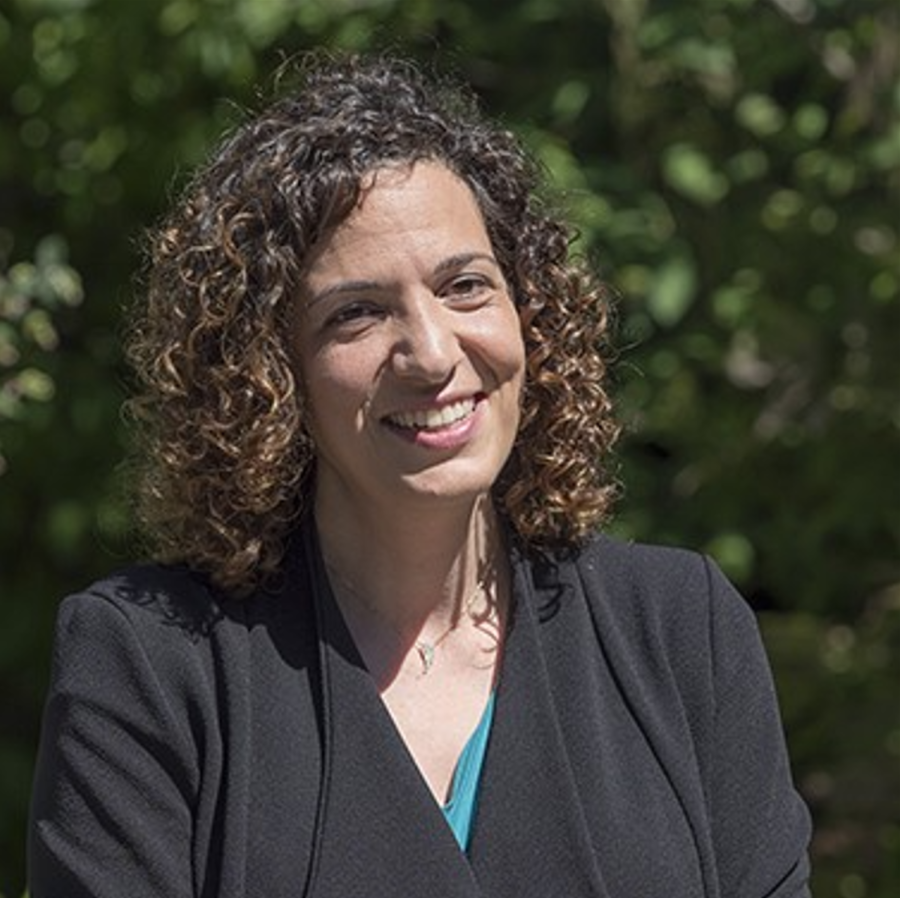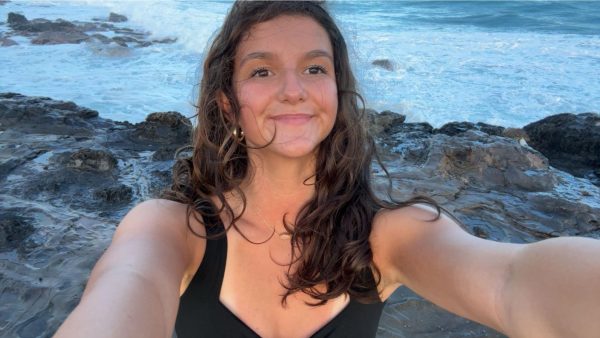A powerful leader in Seattle education, a music enthusiast, an Arab woman in STEM, and an 8th-grade teacher. The director of Lakeside Middle School wears many hats, but as I sat listening to her journey, one quality struck me in particular: Ms. Abu Rahmeh is a visionary.
While I had originally decided to interview Ms. Abu Rahmeh in respect of Women’s History Month, my discussion with her proved to have life insights for Lakesiders that went beyond any specific theme. Ms. Abu Rahmeh grew up in Jordan and attended the Ahliyyah School for Girls. From a young age, she flourished in the STEM-based parts of school, while also studying at the National Music Conservatory and excelling in music, particularly piano.
When recalling her experience at these institutions, she shared in an ever-thoughtful tone: “Because I learned in a girl’s school in a place where otherwise the patriarchy was prominent, it was a powerful message [to learn] that you could do anything you want.” She continued these studies into college, where she received her BS in engineering and her BA in music studies. Looking back, she realizes how these degrees influence her role in education now. She reflected, “Engineering has a methodical way of working through things, and in art, you have to be comfortable with not knowing. So much of my life has been balancing those two.”
After earning her degrees, she began an engineering internship while teaching music lessons on the side. Although this was an interesting experience for her, she quickly found the highlights of her internship were working in a collaborative environment with her colleagues trying to actively solve problems, and staying in the moment. To sum it up, she had a passion for working with people.
With that revelation, her positive experience with teachers, and the ongoing teaching she was able to do via music, she decided to shift her attention to the world of education. Soon enough, she got a job at King’s Academy, the home of the lions in Jordan. At the time it was a relatively new school, so she had ample opportunities to implement her ideas in the institution. For example, she founded the middle school at King’s Academy. Before she left, she had accumulated “13 years of growth and great mentorship from people who believed in what [she] could do.” Empowering others and seeing potential in everyone was a skill she kept with her as she moved into other parts of her life, including Lakeside.
Here at Lakeside, she has a multitude of jobs, from teaching a Human Development 8th grade class to making sure students are supported and teachers have resources as an advisor and the Head of the Middle School. But what seemed to most excite her ties back to her engineering internship: the active, personal, and hands-on changes she can help make happen. I couldn’t help but notice her eyes light up as she talked about all the different initiatives she has spearheaded here: combining History and English classes to deepen 6th graders’ understanding of the Holocaust, resident hip hop dancers in PE, planning dances, and changing report cards so they encompassed more of Lakeside’s modern values.
As I glanced at my clock during the interview, I realized that I had lost track of time. I wanted to hear about her experience with gender, specifically at Lakeside. But, when prompted, Ms. Abu Rahmeh only had positive things to say about her school. Though Lakeside had been an all-boys school until 1971, she believed everyone respected her opinions and treated her accordingly.
Throughout our discussion, she had an inspiring and undeniable lion pride, stating “We aren’t perfect, but there are areas the school is constantly conceding to. Any time a person raises a mirror to this school to check us, it is taken to heart, and we say ‘We will work on this.’ I want to be a part of that.” However, she admitted that because of Lakeside’s history, she was initially hesitant to even apply; “in my mind, I didn’t think I would get the job [because] I didn’t check all the ‘boxes’ Lakeside was asking for.” Those boxes to check may look slightly different to everyone, based on their ideas of Lakeside and their perception of themselves. Although disheartening, the sentiment of imposter syndrome resonates with many of us.
That is where Ms. Abu Rahmeh’s words of wisdom and outlook on life come into play. She wanted to share with everyone that “if you are passionate about something, pursue it and really do it. If you wake up every morning and know you have passion, that’s enough of a reason.” Finally, she shared the feeling of empathy. “If you are able to help someone, to open up a door to someone, or be a voice to someone, you should do it. More than what you can do as an individual, it’s what you can do for others.” Ms. Abu Rahmeh is constantly analyzing what she can do for other people and is grateful for everyone who has believed in her.


